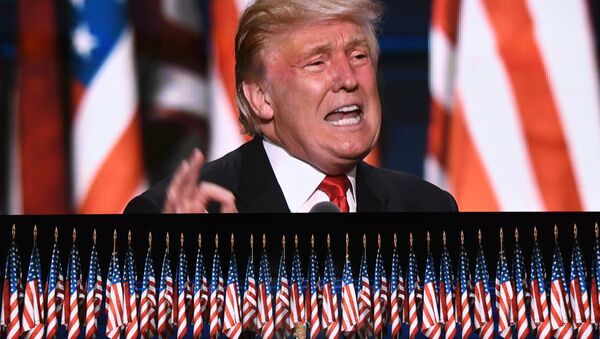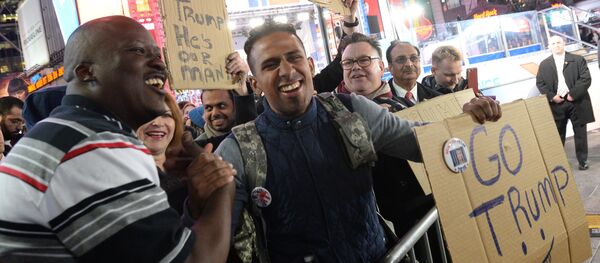"In short, it’s going to take more time to understand the discrepancies between the pre-election polling and yesterday’s results. Clearly, Trump had momentum, in part from the Comey announcement, at the end that the polling couldn’t fully capture," Molly O’Rourke, Director of the MA program in Political Communication at the American University told Sputnik.
On Sunday, Federal Bureau of Investigation Director James Comey closed a briefly reopened criminal probe of Clinton’s email practices after agents uncovered a previously unknown cache of emails.
"But there were also significant issues with modeling voter turnout — pollsters consistently underrepresented non-college educated voters who were Trump’s base and placed too much emphasis on the ‘diversity is destiny’ theory that growing racial diversity would produce Democratic victory," O’Rourke said.
"Interview completion rates are very low. It may be that more likely Trump voters were missed in the survey samples. Perhaps they were more likely to screen their calls," Campbell explained.
He added that most surveys focused on differentiating between Clinton and Trump voters, without taking into account that a large number of Americans had not made a decision between the Democratic and Republican candidate.
"In 2012, there was only about 3 percent who had not indicated a vote for Obama or Romney. This year, there was 9.6 percent in the final RCP [Real Clear Politics] average who had not indicated a Clinton or Trump vote intention. This left a lot more room for election day movement and it may have tilted a good bit away from the in-party candidate," Campbell told Sputnik.
Meanwhile, Mike Hout, Professor of Sociology at the New York University, claims that the radical difference in voting result projections and the actual outcome of the US presidential election this year was to be expected.
"This was normal polling error. It was much larger than the more technical sampling error. But historically the last-weekend polling average can miss by 3 points (in fact it did so in 2012 but nobody cared because it was the difference between a slim win for Obama and a more comfortable will)," Hout told Sputnik.
Trump gained well above the 270 electoral votes needed for a victory in the Tuesday elections, surpassing his Democratic rival Hillary Clinton.
Polling figures had been wildly volatile throughout the 2016 race. Clinton had managed to sustain a national lead over Trump, according to various surveys, but it had fluctuated from well over 10 percent at its height to a statistically insignificant 1 to 2 percent.






